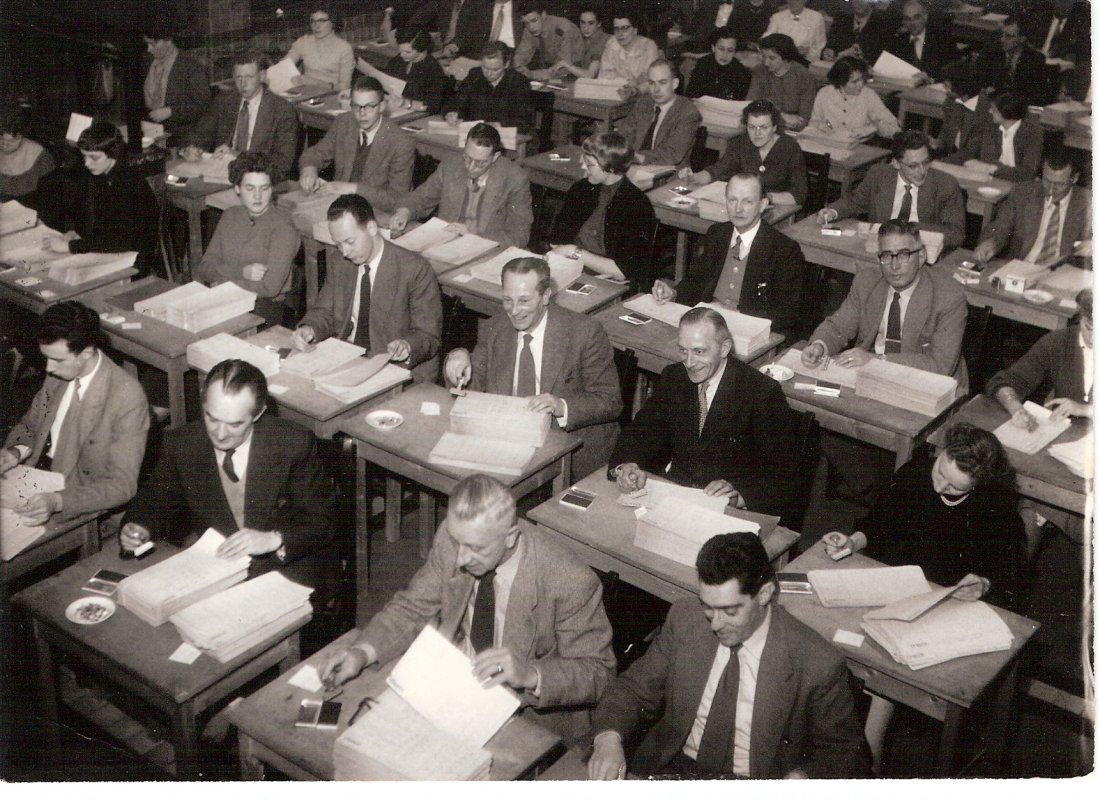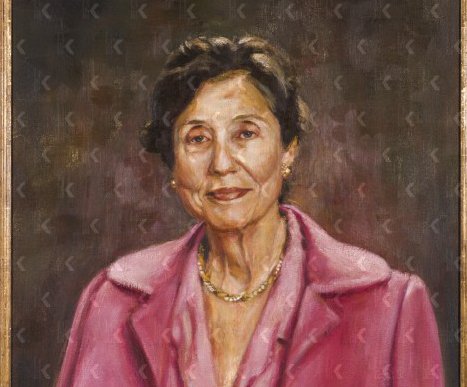
Female staff welcome at the bank after 123 years
The Nutsspaarbank was an all-male stronghold for a staggering 123 years. The first women were employed during World War II, but after that, it still took decades before a woman was appointed to a managerial position.


The Hague Nutsspaarbank was a men-only employer for 123 years. The only woman on the work floor was the cleaner, but she wasn’t the first female employee as she didn’t have a contract.
One of the items on a Board meeting agenda in January 1911 was the possibility of taking on female staff. The subject was discussed again in 1916, but was then dropped for decades.
Miss Zweerus
World War II brought an end to the all-male bastion at the bank. General staff shortages meant that like many other companies and institutions, the Nutsspaarbank was forced to appoint women to its numbers.
The first woman on the bank’s payroll was Miss A.A. Zweerus. She was 19 years old when she entered employment on 15 February 1941, and had been appointed to do simple administrative work. She was paid 40 Dutch guilders per week. She and two other female colleagues resigned a few months later.
Equal pay
Some ten years after Miss Zweerus’ departure, Irma van Tongerloo took a seat at her desk in the Nutsspaarbank. She worked for the bank from September 1951 until March 1975, always in head office. She had heard that the bank was looking for staff and was appointed immediately after her interview.
Irma was one of very few women working at the bank when she started. Most of the women who worked there had administrative jobs. Irma didn’t feel equal to her male colleagues. Nobody had heard of equal pay, for example. “It was never discussed. People just didn’t talk about their salary”, says Irma. She refers to her wages as ‘the bare minimum’. “There was a contribution-free pension scheme. The management counted that as salary, just like a thirteenth month bonus, which they weren’t obliged to pay out. The pension scheme for women kicked in when they were 30, and they could retire at 60. But if you’d accrued less than five years’ worth of pension, your balance went back into the pension fund.”
Women weren’t allowed to apply for every position either. “Women were never appointed as office managers”, Irma remembers.
She eventually resigned from the bank because her husband also worked there. “I stopped because there were people who thought that we shouldn’t work together in the accountancy department, even though John worked in a different department with his own responsibilities.”
Elisabeth Clara Schuller tot Peursum
The possibility of appointing a woman to the Board was first discussed in 1944. Then again in 1957, and again in 1960. The idea of welcoming a woman into the fold came from just one individual Board member. Despite an official report about the matter, nothing actually changed. It would be another 35 years before a woman’s name appeared on the list of Board members.
The day finally arrived in 1980. Elisabeth Clara Schuller tot Peursum was appointed as a member of the Board. Known as Bessy, she was the wife of an ex-serviceman who’d also served in the Allied Forces, named Marinus de Jonge. But this didn’t mean that the bank had finally taken women’s emancipation on board. When she took up her post in 1980, Bessy thanked the Board for their vote of confidence, adding that she would ‘work like a man’ during her time at the bank.
Positive discrimination
Women’s emancipation was a hot item in the 1980s. More women took on management positions in industry, and many companies preferred to appoint women. Positive discrimination was in. But the Hague Nutsspaarbank wanted nothing to do with it.
“Discrimination of any kind is unbusinesslike at the very least, and often contestable, if not downright reprehensible. However, we are happy for women to apply for management positions if they are suitable. As a medium-sized business, we cannot afford to give priority to women simply because they are women. We have to choose the best candidate”, according to Hidde Bouma, sector head of Personnel and Organisation in 1988.
So it was up to young women to make a successful career and break through the male stronghold. In 1988, not a single woman over 40 years of age was working as head of department (or in a higher position). And just 18 of the 75 office managers were women. It sounds shocking but it was an improvement on ten years earlier, when there were only three.